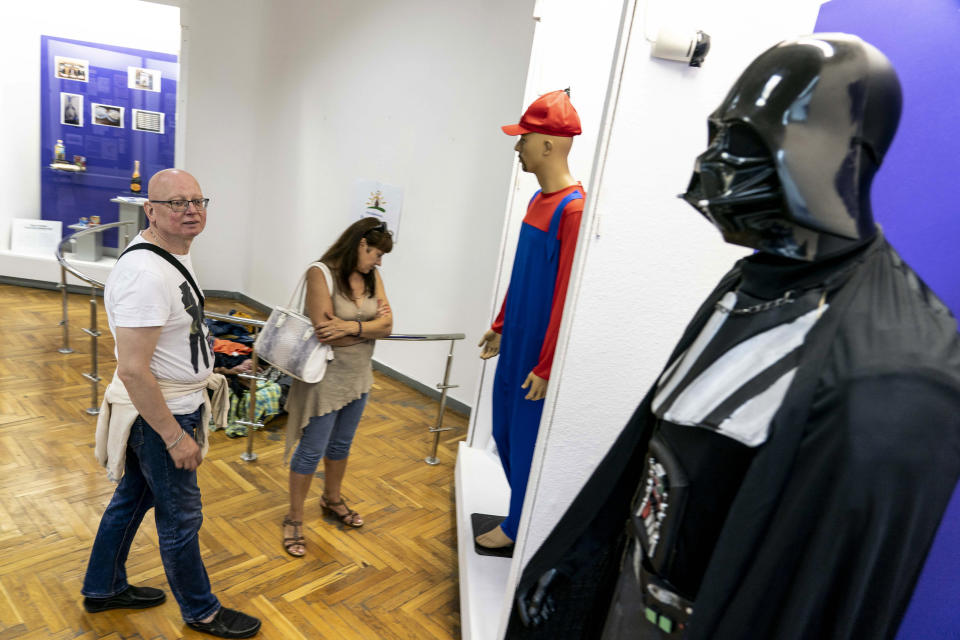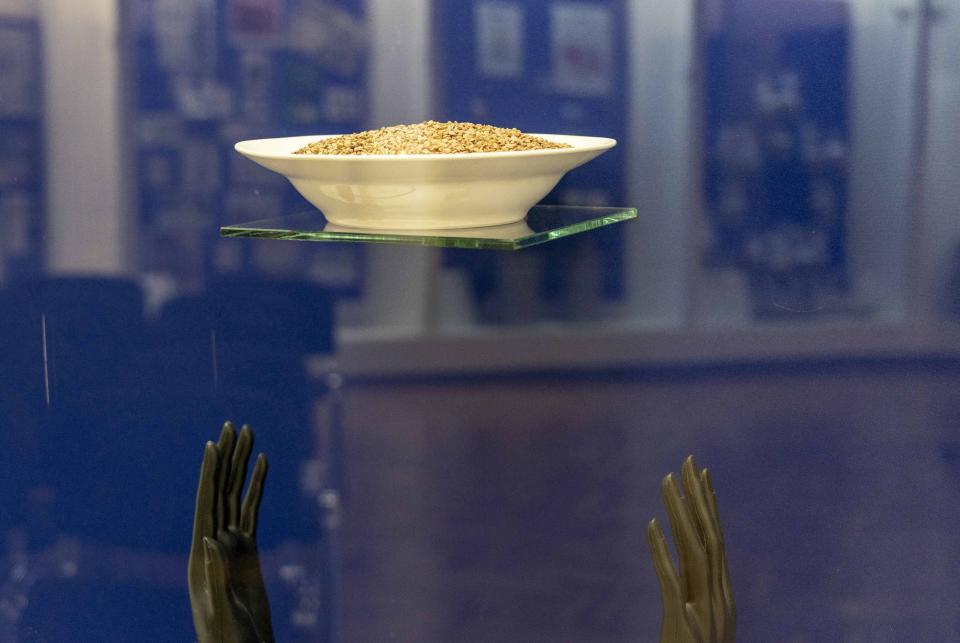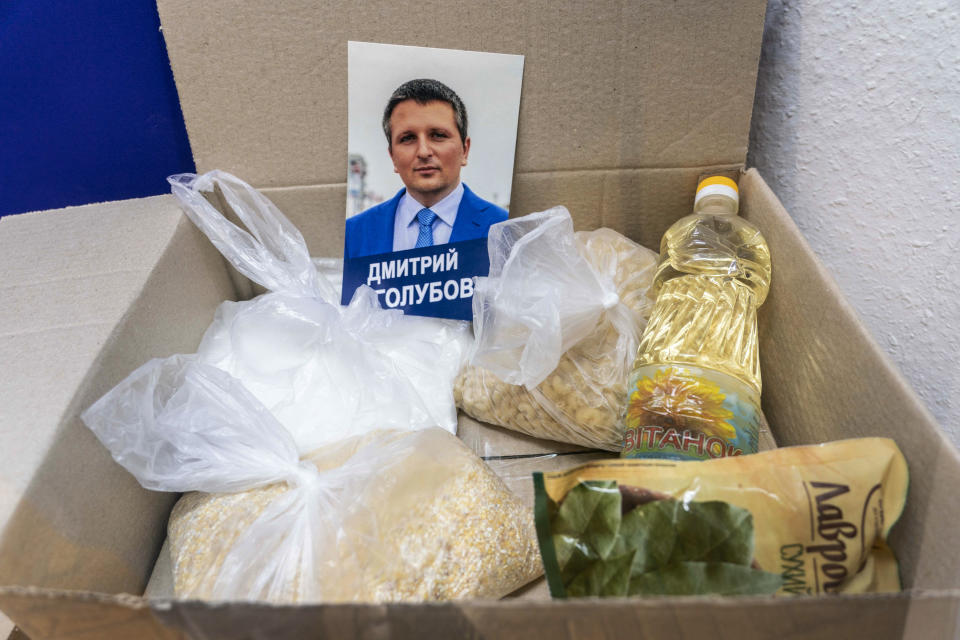Ahead of vote, Ukrainian museum shows 'election trash'
KIEV, Ukraine (AP) — A Darth Vader costume, playground equipment, pastries and boxes of food all are part of an exhibit at Ukraine's National History Museum displaying the colorful behavior and sometime-questionable practices that characterize the country's elections.
The exhibition, called "The Museum of Election Trash" was put together ahead of Sunday's snap parliamentary elections.
Unlike elections in neighboring Russia, campaigns in Ukraine tend to be lively, and the seriousness of some candidates is open to question.
One of those in this year's election is Darth Viktorovich Vader, who is running for a seat in Odessa. This is only the latest appearance of the Star Wars villain — another Darth Vader ran for president in 2014.
The Star Wars theme continues this year with the election being widely called "Battle of the Clones," a reference to the fact that many candidates are mimicking the still-popular recently elected President Volodymyr Zelenskiy and his Servant of the People party.
At least 86 candidates have listed in their bios that they are a "Servant of the People" though they have nothing to do with the president's party. And eight Zelenskiys are running — admittedly it is a fairly common name.
Though Zelenskiy, a former TV comic who won by a landslide in April to become president, is expected to win handsomely, he has recorded a video statement, urging voters to be careful not to vote for the copycats.
Election officials just shrug their shoulders.
"The law unfortunately has no restrictions for those who are trying to confuse the voters," says Volodymyr Vyrva, spokesman for the Central Election Commission. "There's nothing we can do."
The "electoral trash" exhibit also highlights candidates' efforts to influence voters through gifts. The items include colorful equipment for a town playground that one candidate provided before an election, along with pastries and boxes of foodstuffs handed out to voters.
Museum employee Yulia Reshitko says such bribery will remain a feature of Ukrainian elections so long as millions of people struggle to make ends meet. The latest trend is providing free tickets to pop gigs or classical music concerts.
"People were happy with the food boxes before," she said.
Zelenskiy's successful transformation has encouraged others. Svyatoslav Vakarchuk, for example, is the leader of the new Golos party — and arguably the nation's most beloved rock star.
"Political extravaganza is part of the Ukrainian tradition where politicians have often resorted to various attention-grabbing antics," says Kiev-based political analyst Volodymyr Fesenko. "But the extravaganza does not always produce good results."
In 2010, a western Ukrainian man who changed his last name to "Protyvsikh" which translates into English as "Against Everyone" ran for president and won just 0.2 percent of the vote.



